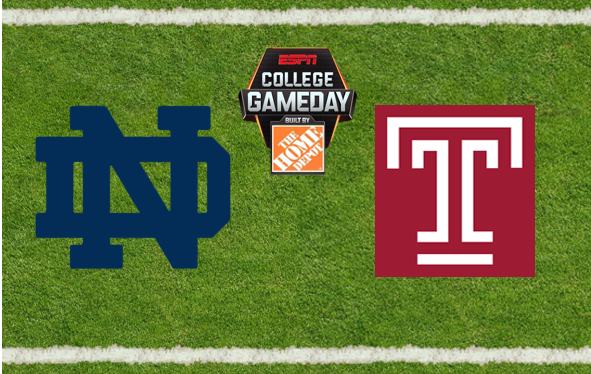The Uproar That Led to Temple’s Boost in the US News Rankings
Follow WHIP Twitter Facebook Instagram
WRITTEN BY: Jadon George
Earlier today, U.S. News and World Report released its 2024 “Best Colleges” rankings, the first under the magazine’s “revamped” formula for evaluating higher ed. Temple University jumped 32 spots on this year’s leaderboard, from 121st on the 2023 list to 89th now. Per Temple University Twitter, “This marks the highest ranking ever for the university and the first time Temple has been included in the top 100.”
Temple’s jump, however, didn’t happen in a vacuum. According to Alan Blinder at the New York Times, “more than a dozen public universities, many of them with relatively low profiles,” climbed dozens of spots from last year’s rankings thanks to the revamp. Chief among them: Fresno State (249th to 185th, +64) and Florida Atlantic (262nd to 209th, +53).
According to the Philadelphia Inquirer, U.S. News’s criteria no longer includes alumni gifts, class size, high school standing, student loan debt, and faculty with “terminal degrees” – education-speak for medical doctors, PhDs, and (oddly enough) JDs. All these numbers would tend to boost well-endowed private colleges like Swarthmore at the expense of large, populous, state-funded schools like Temple. Peek under the surface, though, and something else becomes clear: None of the stats above are matters of public record. Colleges have to pull these statistics from their internal records and send them to outlets and organizations upon request.
In February 2021, Malcolm Gladwell’s Revisionist History podcast released one of its most controversial episodes to date, titled “Lord of the Rankings.” Gladwell and his team, drawn to the mystery of U.S. News’s collegiate rankings, spun their award-winning pod into a miniseries that pulled back the curtain on the rankings’ secret formula. Gladwell & Co. claimed that U.S. News’s criteria punished schools for giving more help to low-income students; heavily weighted a “Reputation Score” that turned out to be little more than a baseless intercollegiate vibe check; and, in a separate episode, charged that the rankings tilted the field against HBCUs like Dillard University in New Orleans.
None of this was even the juiciest charge of Gladwell’s two-part takedown: In 2002, Reed College’s then-president, Steven S. Koblik, announced his school would no longer send data to U.S. News for ranking purposes. The next year, U.S. News dropped the Portland-based private school several spots in its rankings, with no clear indication as to why. (Naturally, in “Lord of the Rankings,” it’s computer scientists at Reed who reverse-engineer the secret parts of U.S. News’s old formula and, according to Gladwell, largely replicate its output.) Colin Diver, Reed’s current president, followed Revisionist History’s work with an essay and a book, “Breaking Ranks,” in 2022, opening a multi-front attack on “the rankings industry” and holding up his predecessor as a model for how colleges can “fight back.”
Law colleges had been sounding the alarm against U.S. News since at least 1998, arguing that such guidebooks tempt colleges to bend their admissions standards and manipulate data to spike their places in the U.S. News pecking order. According to Jan Hoffman of the New York Times, some medical schools were already starting to ghost the U.S. News survey.
But the real revolt began last winter. On November 16, 2022, Yale Law called a cordon sanitaire on U.S. News’s listing of J.D. programs; not to be outdone, Harvard immediately followed suit. By the end of the month, the law programs at Georgetown, Michigan, UCLA, Columbia, Northwestern, Duke, and UC-Irvine had joined the boycott – essentially stripping U.S. News of its ability to claim an inside track on elite law schools. Undergraduate schools stayed put for this year, except for Columbia. After U.S. News dropped it for “outdated and/or incorrect” data in 2022, the Broadway-based Ivy declared that it’d ignore the “Best Colleges” survey, starting this year.
Even Miguel Cardona, the U.S. Secretary of Education, piled on. At a conference organized by Harvard Law to review the rankings, Cardona said, “It’s time to stop worshiping at the false altar of U.S. News & World Report. It’s time to focus on what truly matters: Delivering value and upward mobility.”
As the Philadelphia Inquirer explained this morning, yes, U.S. News altered their criteria for efficacy’s sake – or, as magazine CEO Eric Greitler said, “to make sure our rankings capture what is most important to students as they compare colleges and select the school that is right for them.” Another instinct, undeniably, is at play here, too: Survival.
This isn’t to say that Gladwell or Reed blew the roof off of collegiate rankings. It doesn’t even suggest that anyone is in any way responsible for the tweaks that made Temple University jump to record heights. If anything, the fact that Temple put out a statement celebrating its rise shows that U.S. News & World Report has watched its power peter away, rather than bleed. However, that the magazine changed its metrics at all — either in response to the current controversy or as a bulwark against a new one — proves, at least, that they were never immovable.
–
Jadon George serves as the assistant news director at WHIP. He co-hosts “Rational Radio,” a roundtable covering national and international news, every Thursday at 5 p.m.




